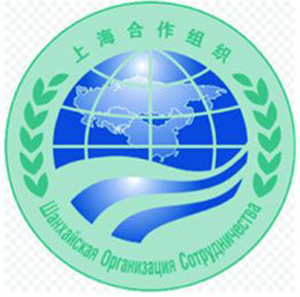Refocus on the Region
Iran is re-turning to regional diplomacy to counter threats. By Mina Ali-Eslam

At a time when its nuclear program is increasingly worrying Western powers, Iran has turned towards a regional organization, the Shanghai Cooperation Organization (SCO), for its diplomatic objectives. Six months after Mahmoud Ahmadinejad visited Moscow to attend the SCO summit, Iranian ambassador to Moscow Seyyed Reza Sajjadi met Special Representative of the President of Russia for SCO affairs to discuss Iran’s membership in the organization.
The meeting is in line with Iran’s efforts to persuade the Russians to support its full membership in the organization, and a symbolic gesture to exhibit the level of relations between the two countries. Iran is currently is admitted as an observer in the organization but intends to gain full membership to enjoy the benefits of inter-organizational cooperation, while reinforcing its ties with Beijing and Moscow. For Iran, membership means additional strings that attach it to veto-wielding Russia and China, thus making it easier to face up U.S. threats.
During the recent years, Russians have been dubious about their relation to West, that is, whether to be a strategic rival or a major partner. This partially explains the remarkable level (at least on the surface) of bilateral ties between Moscow and Tehran. There are also the Chinese with their non-stop economic development that has turned them into one of the major political and economic powerhouses. However, with the ever-growing interdependence of China and West, it is quite hard to envisage a future in which China decides to act against the will of West.
But let’s not forget the glitch in Tehran’s relations with Moscow and Beijing: the two Eastern powers are hesitant in supporting Tehran considering its aggressive attitude towards West, while Tehran also doubts the capability and commitment of China and Russia to satisfy its strategic demands. That is how never a full trust between Iran and these countries has developed.
Meanwhile, there is the factor of economic interdependence that has a large impact on foreign diplomacy of countries in today’s world. China and Russia’s membership in the Shanghai Cooperation Organization and Iran’s participation as an observer has provided an opportunity for economic exchanges. For Iran, however, what bears import is gaining full support of these two powers to achieve its nuclear objectives. For reasons regarding their national interests, China and Russia have shown support for Iran every now and then.
Reinforcing regional ties is a chance for Tehran to protect itself against international pressures. Tehran’s Middle East, Asian -in general pro-East diplomacy- shows its determination to gain the support of regional, and at a higher level Asian, countries as a buffer against any external threat. The course of West’s pressures on Iran shows that in case of failure of UN Security Council resolutions, the possibility of unilateral measures by Western countries stands at its highest. Iran’s post-election domestic developments have also paved the way for such measures. West believes that Iran is at a point where it will yield to the pressures. For Iran, however, close ties with Russia and China are still a ray of light, and that urges Tehran to appreciate the Shanghai Cooperation Organization.
The meeting is in line with Iran’s efforts to persuade the Russians to support its full membership in the organization, and a symbolic gesture to exhibit the level of relations between the two countries. Iran is currently is admitted as an observer in the organization but intends to gain full membership to enjoy the benefits of inter-organizational cooperation, while reinforcing its ties with Beijing and Moscow. For Iran, membership means additional strings that attach it to veto-wielding Russia and China, thus making it easier to face up U.S. threats.
During the recent years, Russians have been dubious about their relation to West, that is, whether to be a strategic rival or a major partner. This partially explains the remarkable level (at least on the surface) of bilateral ties between Moscow and Tehran. There are also the Chinese with their non-stop economic development that has turned them into one of the major political and economic powerhouses. However, with the ever-growing interdependence of China and West, it is quite hard to envisage a future in which China decides to act against the will of West.
But let’s not forget the glitch in Tehran’s relations with Moscow and Beijing: the two Eastern powers are hesitant in supporting Tehran considering its aggressive attitude towards West, while Tehran also doubts the capability and commitment of China and Russia to satisfy its strategic demands. That is how never a full trust between Iran and these countries has developed.
Meanwhile, there is the factor of economic interdependence that has a large impact on foreign diplomacy of countries in today’s world. China and Russia’s membership in the Shanghai Cooperation Organization and Iran’s participation as an observer has provided an opportunity for economic exchanges. For Iran, however, what bears import is gaining full support of these two powers to achieve its nuclear objectives. For reasons regarding their national interests, China and Russia have shown support for Iran every now and then.
Reinforcing regional ties is a chance for Tehran to protect itself against international pressures. Tehran’s Middle East, Asian -in general pro-East diplomacy- shows its determination to gain the support of regional, and at a higher level Asian, countries as a buffer against any external threat. The course of West’s pressures on Iran shows that in case of failure of UN Security Council resolutions, the possibility of unilateral measures by Western countries stands at its highest. Iran’s post-election domestic developments have also paved the way for such measures. West believes that Iran is at a point where it will yield to the pressures. For Iran, however, close ties with Russia and China are still a ray of light, and that urges Tehran to appreciate the Shanghai Cooperation Organization.

